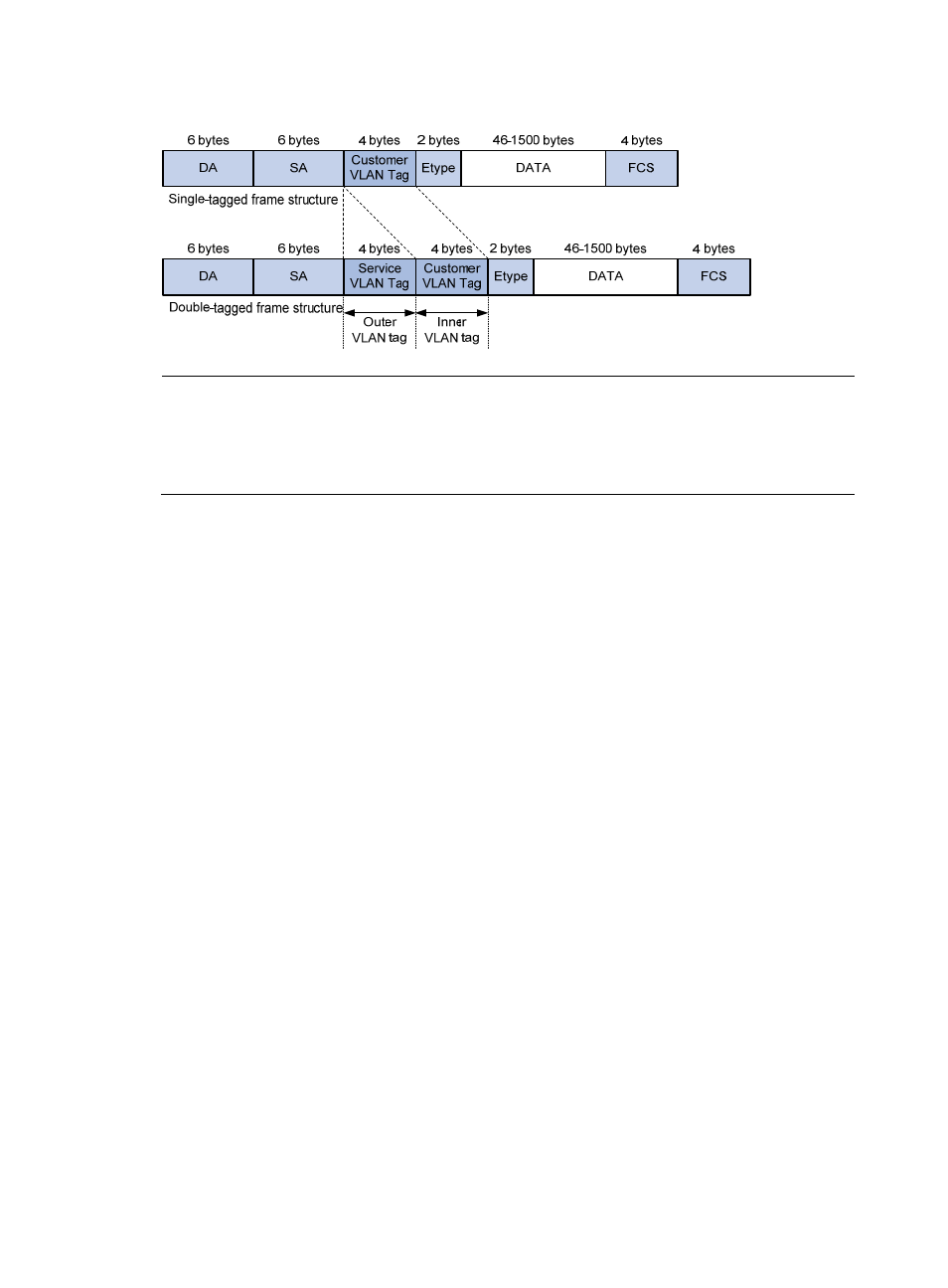Implementations of qinq, Modifying the tpid in a vlan tag, N in – H3C Technologies H3C S10500 Series Switches User Manual
Page 185: Figure 57

174
Figure 57 Single-tagged Ethernet frame header and double-tagged Ethernet frame header
NOTE:
The default maximum transmission unit (MTU) of an interface is 1500 bytes. The size of an outer VLAN tag
is 4 bytes. H3C recommends you to increase the MTU of each interface on the service provider network to
at least 1504 bytes. For more information about interface MTU configuration, see the chapter “Ethernet
interface configuration.”
Implementations of QinQ
H3C provides the following QinQ implementations: basic QinQ and selective QinQ.
1.
Basic QinQ
Basic QinQ enables a port to tag any incoming frames with its port VLAN ID (PVID) tag, regardless of
whether they have been tagged or not. If an incoming frame has been tagged, it becomes a
double-tagged frame. If not, it becomes a frame tagged with the PVID tag.
2.
Selective QinQ
Selective QinQ is more flexible than basic QinQ. In addition to all the functions of basic QinQ, selective
QinQ enables a port to perform the following per-CVLAN actions for incoming frames:
•
Tag frames from different CVLANs with different SVLAN tags.
•
Mark the outer VLAN 802.1p priority based on the existing inner VLAN 802.1p priority.
•
Modify the inner VLAN ID.
Besides being able to separate the service provider network from the customer networks, selective QinQ
provides abundant service features and enables more flexible networking.
Modifying the TPID in a VLAN tag
A VLAN tag uses the tag protocol identifier (TPID) field to identify the protocol type of the tag. The default
value of this field, as defined in IEEE 802.1Q, is 0x8100.
shows the 802.1Q-defined tag structure of an Ethernet frame.